
views

Be friendly towards others. You don't necessarily need to know them, but a simple hello or greeting goes a long way. Creating friendly relationships also makes it easier to interact in the future if anyone has questions or concerns.

Acknowledge neighbors who smile at you or greet you. You don't have to stop and chat, but a little smile and wave don't cost you anything. Remember the nasty thoughts that crossed your mind about people you've said hi to who ignored you? You don't want anyone thinking of you that way. Don't be creepy or annoying. While being friendly is important, it's equally important to allow your neighbors the level of privacy they desire. Don't just knock on people's doors and expect them to invite you in. Read your neighbors' body language. Does it look like they're in a hurry? Have they actually told you that they are in a rush? Then stop talking and let them go! Get to know the property management and employees. Be sure to keep a contact list in case you need a maintenance fix or for emergency purposes. Put all requests for work in writing. Participate in your apartment's events, discussion board or tenant portal. One of the potential benefits of apartment living is that neighbors look after one another. Introducing yourself is the first step toward getting the most out of your community.
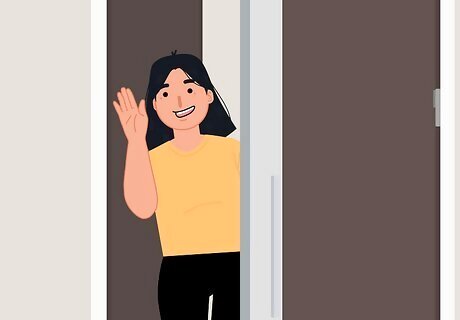
Be soft-spoken when entering and exiting. It may be normal to walk from the parking lot to your front door and vice versa, but you'll need to consider how loud a person is. Avoid stomping on stairwells, especially when leaving before sunrise or coming back late at night. Try not to walk around apartment with wood floors in your shoes (put them on just prior to leaving your apartment and remove upon entering your apartment) not all tenants work a "9-5" job and may be trying to sleep during "regular" daylight hours. Keep the noise at whisper-level in hallways. Loud laughter and conversations while people are relaxing or sleeping are a nuisance. Close doors behind you gently. Apartment doors create a lot of noise. Don't let them slam shut.

Be considerate of the noise level inside the apartment. This is one of the most common complaints reported to managers. More noise etiquette is needed if you live above another person. Soft footwear makes less noise than heavy duty items such as boots or high heels. It's not necessary to thump your heels around the kitchen in the middle of the night. If a neighbor requests for you to keep the noise level down, take it to heart. Rugs and rug pads are a must if you have hard flooring. Try to vacuum or use exercise machines on the weekends or when you know people are at work. Noise and vibrations goes through floorboards and can be louder than you think. Practice "quiet time" rules with children. Allow them to jump and run around during the day, but instruct them that they need to stop doing so when the sun goes down. Instead of having them create havoc indoors, spend quality time outside, such as in a small community playground. If you don't have carpet, have plenty of rugs down on the floor to muffle the noise of children. Don't allow children to run or play in the hallways. Turn the volume down on electronics, such as radios and televisions. For wall-to-wall neighbors, you may want to move devices away from those specific walls. If you're hard of hearing or if you like to listen to media at a high volume, invest in headphones.

Have on-site laundry etiquette. It's advisable to time each machine and avoid leaving clothe unattended for any period. A typical washer operates for about 30 minutes on average, while a dryer can take between 45 and 60 minutes. Never stop another person's laundry mid-wash or mid-dry to use a machine. Never insert another person's wet clothes into a dryer. Every person has their own specific way of drying clothes, whether it's air drying or using a particular machine dial/setting. And then there are the delicates that shouldn't be placed in the dryer at all! If no washers and dryers are available and another person's clothes have been sitting in an otherwise usable machine, you may remove them. It is considerate to wait at least 10 minutes if you can. Lay their clothes on a clean plastic bag, on a counter or on a folding table - never on the floor. Always clean out lint screens and wipe up any spills. Who wants to clean up after another person that did a load before you?
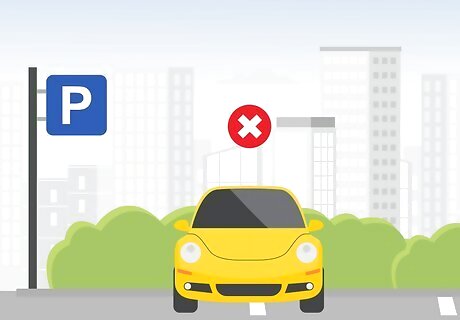
Know the rules for different kinds of apartment parking. Respect all parking space borders by parking within the lines not on them) and don't double park.

In assigned lots, parking stalls are included in contracts. It is never okay to assume that you can use an empty space. Not even for just a few minutes. If your neighbor returns and finds your car in their space, you can probably forget your chances of having a civil relationship with them.

Offer any positive assistance or convenience to your elderly neighbors. If you see them in the parking lot with groceries, ask them if they need help carrying them inside the building or hold any doors open. If you see their mail piling up or you don't notice their lights on at night for some time, knock on their door and see if they're doing okay. If you see a neighbor struggling to take their trash cans in or out, you can approach them and ask if you can help in some way. Or if you observe them driving in a way that may not be safe and if you know their family, you can tell them that you observed something which can be unsafe for them. There is a network of various organizations in every community that provides free medicines and other facilities. You can donate money to them or work as a volunteer.

Ask any questions regarding smoking with the property management. Even if it's allowed inside the apartment, make sure that the area is completely ventilated with the windows and vents open. If smoke isn't venting well, install a box fan in your window backwards to suck the smoke out. Properly discard cigarette butts in your own trash; do not fling them out the window. You need to obey rules with a non-smoking apartment, so light up on the sidewalk.

Choose small pets for a pet-friendly apartment. Be aware of what - if any - house pets are permitted. If your building allows cats and dogs, choose small ones. Cats and small dogs don't usually make a lot of noise while walking on floors and they are less likely to threaten other neighbors. Always keep any four-legged animal on a leash while walking outside of your apartment and bring a plastic bag with you at all times. Inform your neighbors about a new pet if you're uncertain about their feelings.
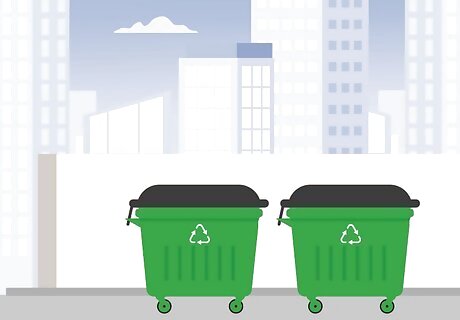
Have apartment dumpster etiquette. Always break down and fold up boxes and other compact items. Make sure your trash bag is secured closed and that it isn't leaking. Double bag if necessary. Be sure to wrap sharp edged items carefully and multiple times in newspaper or paper shopping bags. Leaky bags leave behind odors and stains that are likely to offend your neighbors and management won't have any trouble following the trail of the stain that probably ends at your door. In that case, you may be charged for clean up costs or even for carpet replacement. Do not overfill bins or attempt to squeeze a too large bag down a trash chute. If your bag expands even a little as it falls, it could get stuck and create a back up.
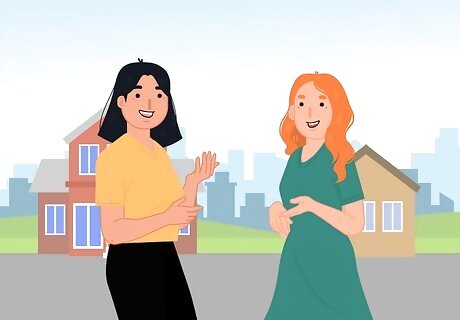
Only invite guests over who can respect your apartment buildings house rules. Most contracts forbid guests or any person not under the lease to be left alone in the apartment. Reckless behavior or any disputes between the guest(s) and another tenant may become the leaseholder's responsibility. If holding a party, let those neighbors likely to be inconvenienced know about the occasion. If you think the neighbors will enjoy themselves too, consider inviting them. Avoid having loud get-togethers on weeknights. Most importantly, be tolerant. Whether you forgot about a load of laundry in the dryer or accidentally started a fire, we've all behaved inconsiderately at some point. Your neighbors are no different. They aren't perfect either.












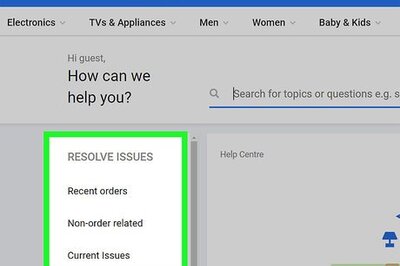



Comments
0 comment